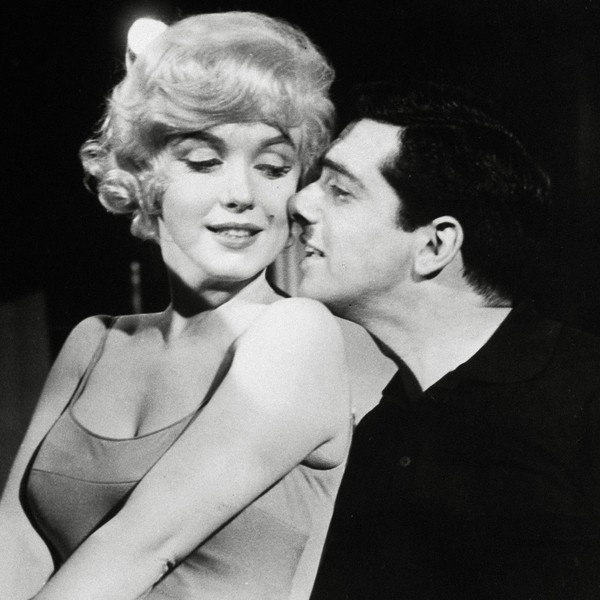Are We Actually Ready to Eat the Rich–Or Do We Just Love Watching Them?
From The Triangle of Sadness to Saltburn, why do these movies fail to live up to the radical messaging we give them credit for?

Saltburn
It’s official: the popularity of “eat the rich” media–like Saltburn, White Lotus, Parasite, Triangle of Sadness, The Menu, Infinity Pool, The Fall of the House of Usher, and the Knives Out movies–has reached a fever pitch. If you’re not familiar with the trope, it’s essentially the vilification of the rich, often deployed metaphorically to advocate for an uprising of the lower classes. In current popular media, there is usually the added element of the rich characters undergoing some terrible event–ranging from marital troubles to shipwrecks to even death–as some sort of comeuppance for being wealthy. However, as I watched the most recent installment, Saltburn, and all of the internet critique that followed, I found myself wondering why so many of these movies have been falling flat for me. Sure, they’re comparatively progressive in that they even acknowledge class exists, but for many of them, the messaging feels hollow and unrealized. Saltburn, in particular, had me wondering: Are audiences actually ready to eat the rich–or are we just using the trope as a cover for how much we still love watching them?
In theory, the time would be ripe for true “eat the rich” media. Inflation has been hitting historic highs. Millennials and Gen Z are working more hours for less pay than their parents, and are struggling to make ends meet despite being the most educated generation in history (a development that resulted in even more debt). And yet, the disparity in income and wealth between the classes has only increased over time. The pay for the average CEO has increased by a whopping 1,460% over the last few decades (by the way, that’s a ratio of 399-to-1 versus the salary of the average worker) despite there being no evidence that they are more productive or skilled than other workers. America’s famed comfortable middle class is disappearing, all while we’ve seen a record number of billionaires. In other words, there’s no shortage of reasons for the average media-consumer to be a bit resentful of the mega-wealthy, and for a rise in popular anti-capitalist sentiment. However, despite all this, I have had a hard time finding much substantive political commentary that tackles these issues with any real teeth in most “eat the rich” media.
Take Saltburn. If you haven’t seen it yet, there are spoilers ahead, so bookmark this, stream it on Prime, and come back. (It’s not a particularly good movie, but it was still a fun one, so it’s worth a watch if you’re so inclined.) In Saltburn, Barry Keoghan’s Oliver, a self-described working-class child of addict parents, meets Jacob Elordi’s Felix Catton, the rich son of landed gentry. Oliver immediately becomes fixated on Felix, and the two ultimately become close friends. Oliver tells Felix that his father has just died, and Felix invites him to his family home for the summer. At the palatial family estate, Oliver ingratiates himself to the rest of the Catton family and becomes enamored with their careless, decadent lifestyle. Hijinks ensue, and ultimately Felix and his entire family die at the hands of Oliver’s machinations. Through some vague, minimally-depicted friendship with the Catton matriarch, Oliver manages to inherit the entire estate, and the last scene is him celebrating by snorting cocaine and dancing naked through his new mansion, in front of a smack-you-in-the-face metaphorical puppet theater representing the family he’s offed.
While the movie is clearly an exploration of specifically British issues of class fluidity–the British upper classes are much more entrenched and exclusive, while in America, more money pretty neatly equals higher class–yet American audiences have projected their own fiscally-driven interpretation on it. Much of the online discourse about Saltburn has it made clear that most viewers simply lump it in with other “eat the rich” media, much of which depicts working class characters–such as the cash-strapped Kim family in Parasite or the maid who gets the big inheritance in Knives Out – as “getting one over” on the wealthy characters. The viewers who see Saltburn as fitting into that category are conveniently ignoring the movie’s biggest twist: that Oliver is not an impoverished child of junkies, but actually solidly upper-middle class. At the end of the second act, we learn that Oliver has lied about every facet of his childhood, and not only is his father not dead nor are his parents addicts, but he grew up in a large, comfortable home with a loving family.
This twist is the only narrative high point in a movie that otherwise doesn’t have much to say, and explains why Oliver has been able to manipulate the Catton family so well: He knows exactly what they want to hear, because he’s more one of them than not. He knows that social self-debasement is an effective way to placate the higher classes. Oliver isn’t a poor victim of unchecked capitalism redistributing ill-gotten wealth. He’s an ambitious child of privilege in his own right, and just like the Cattons, believes that more is more and enough is never enough. He’s a voyeur and coveteur of extreme wealth–mirroring the viewers themselves, most of whom were drawn to the movie based on its sets and aesthetics. He’s the original definition of “bourgeois,” a term we tend to think of as the modern colloquial “bad and boujee” referring to high-class tastes. However, the term “bourgeois” originally meant the wealthy upper middle class that deposed the monarchy and aristocracy during the French Revolution. “Bourgeoisie” now officially refers to a social-climbing upper middle class given to materialism and hedonism, and in Marxist theory, refers to a “capitalist ruling class” who own the means of production, such as factory owners, bankers, and landlords–not aristocrats. Oliver is not working class, nor is he a member of the generational wealthy who arose under monarchy: he’s the dictionary definition of “bourgeois,” a member of an obsessive, covetous, and materialistic upper middle class.
And yet, many have perplexingly decided that he’s a modern-day Robin Hood giving the upper classes a taste of their own medicine. I personally have a hard time understanding this interpretation. The Catton family are written as, frankly, very kind and generous people, despite being emotionally repressed and out of touch, and Oliver stands out as the clear villain in the story (though given the writer/director’s upper-class upbringing, this may just be unconscious bias seeping through). Yet, the average American armchair film critic seems to assume that he’s the hero, ostensibly because of the reductive narrative we have come to expect: rich people bad, poor people good, end of critique. I’m not defending the rich–I personally think vast personal wealth is definitively amoral and indefensible–but merely pointing out what the TikTok film bros keep forgetting: Oliver is NOT poor. If anything, he’s more like these white TikTok and Letterboxd contributors who can afford to get film degrees and pursue a creative field than he is like someone who has significantly struggled in life. And maybe this is why so many viewers think he’s a hero: because he represents them. And who among us does not see ourselves as life’s ultimate protagonist–or find it easier to villainize a caricature of wealth rather than to look critically at our own political culpability?
This would also explain why these types of films tend to focus on the uber-wealthy: it takes the onus off of middle and upper middle-class viewers with regard to class guilt. It’s the sociopolitical version of Tarantino making the villains of his gratuitously violent films Nazis and slave owners. Who’s going to complain about extreme violence against them? A comeuppance for the undeniable injustice and immorality of the 0.01% feels like a victimless crime, and is pretty pleasurable schadenfreude for the other 99.99%. However, the glut of these films is starting to make their messaging ring almost as hollow as Tarantino’s tautological “bad people are bad” theses. Inglourious Basterds doesn’t do much besides ask the question, “Wouldn’t it have been neat if someone had just blown up Hitler?” rather than, for example, exploring any of the social issues that led to the Third Reich in the first place. A lot of “eat the rich” media feels the same. “Wouldn’t it be funny if rich people with no survival skills got shipwrecked?” as a thesis does about as much for moving the political conversation forward as the show The Simple Life did. In other words, it doesn’t do much beyond providing soothing, satisfying, and self-congratulatory entertainment (though for the record, Triangle of Sadness is some damn good entertainment).
It’s no coincidence that this “eat the rich” trend is mostly showing up exclusively in material made for entertainment purposes. Like much entertainment, it’s there to divert and to soothe anxieties, just as post-9/11 movies casting all villains as terrorists–for example, The Dark Knight’s reimagining of the Joker–were hugely beloved and popular. Recently, America has been undergoing a reckoning with how we view wealth and privilege. Take the pandemic: suddenly, every celeb attempting to be relatable by posting that they were suffering in quarantine just like the rest of us was getting called out for the gall of analogizing confinement in a staffed mansion to being stuck in tiny apartments, getting laid off, and/or risking their lives as essential workers. See also the Kardashians: by 2020, viewership for a show basically just about a rich family living their lives went from hugely popular to a viewership drop of 82%, a drop that is likely completely inverse to the family’s respective net worths. What was once a somewhat relatable family set against the calming backdrop of comparatively moderate wealth lost all appeal once the members started entering billionaire status. They had become too unrelatable, especially for their average financially unstable viewer, and the voyeurism of their very real wealth was simply not the stressless fun it once was.
Americans are currently at a crossroads, one marked by the contradiction of the long-held myth of the American Dream of socio-economic fluidity with the growing awareness of social and financial inequity. We live in a society where wealthy nepo baby Donald Trump is seen as a relatable everyman by voters who will never see even a fraction of his income, and where financially stable young people are so desperate to claim non-oppressor identities that they unironically align themselves with Saltburn’s sociopathic Oliver. Americans are torn between the comforting old belief that anyone can be anything in this country and the dawning acknowledgment that this is irrefutably untrue, and will not change without huge amounts of effort and uproar. Thus, “eat the rich” media is less of a political statement and more of a soothing concession. In picking the uber-wealthy as the villains, it lets the viewers be both culpable consumers and guiltless heroes. It’s basically class-anxiety pornography, pure catharsis without a real message or call to action.
One show that I found to actually have some “eat the rich” substance was Mike Flanagan’s The Fall of the House of Usher, chronicling how a wealthy man’s greed led to the death of all his children (these deaths are established in the first episode, so not a spoiler, I promise!). While the show is ostensibly an exploration of the work of Edgar Allen Poe, the ever-thoughtful Flanagan also delivers a thorough and incisive look at the real capitalist villain: greed. In the show, the titular Roderick Usher builds his fortune through the obviously problematic industry of prescription opiates. We get his backstory of a poor upbringing and denial by his wealthy biological father. Flanagan skillfully portrays how, although Usher has legitimate financial and emotional trauma, his response of essentially identifying with the aggressor and fighting greed with greed is a willful choice for which he does deserve to suffer consequences–basically the anti-Saltburn, forcing the viewer to objectively scrutinize a seemingly likable character instead of lazily letting them root for a terrible one unchallenged. Flanagan identifies the real villains: corporations and government actors, guided by good old-fashioned self-interest. Is it as fun to watch devastating decisions be made in a boardroom as it is to watch a rich housewife shit herself on a cruise? No, but it is a hell of a lot more meaningful. Flanagan does lean into the rich people torture porn–but the characters are tortured by their consciences and the judgment of a higher power (you’ll be surprised who). With images like Usher hallucinating an endless pile of the corpses of those who overdosed on his product and plot points explaining how some characters find happiness through responsible uses of wealth, Flanagan demonstrates how the allure of this kind of cathartic, schadenfroh media can indeed be channeled for the greater good. Unlike Saltburn, Usher’s wealth is explicitly tied to something concretely immoral. Sure, the Catton family presumably built their generational wealth off of the inherently problematic system of monarchy–but Saltburn never shows us those problems, and indeed seems to go out of its way to showcase only the pretty and visually entertaining aspects of wealth.
It’s worth pointing out that media conglomerates that have thrived under capitalism are making a killing spoon-feeding us anti-capitalist content. They feel fine doing this, because they know the content is just lip service to a concept, presented to a society that has yet to take more than minimal baby steps towards real political change in that arena. I genuinely enjoy many of the “eat the rich” shows and movies, and think there is value in using art to encapsulate popular sentiments and anxieties and to normalize progressive sentiments. However, I don’t think we can all start patting ourselves on the back for our radicalism quite yet. Real voter-organized movements leading to actual changes in law and policy would be necessary for us to claim those particular brownie points. So, in conclusion, there’s no shame in enjoying class anxiety-soothing media–just make sure that it doesn’t soothe you into being too complacent to ever actually do anything about it.




